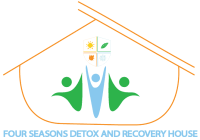Journaling is an excellent tool in addiction recovery. Writing about what’s on your mind is therapeutic. Journaling practices can also help you self-reflect, identify patterns, and get to know and appreciate yourself more. It’s free, and multiple research studies support journaling for mental health, specifically alongside therapy.
Whether used in a formal treatment setting like Four Seasons Detox or on your own, you deserve to get the benefits. Let’s go over five journal prompts for addiction recovery that you can use today.
5 Journal Prompts for Addiction Recovery
Sometimes, journaling comes naturally; on some days, you might sit down and have a lot to get off your chest. Other times, it can be hard to know what to write about. Here are five journal prompts for addiction recovery.
Write a goodbye letter to your addiction.
This is a common but compelling prompt for therapeutic writing in addiction recovery. Write a goodbye letter to your addiction; you can include everything from why and how you started using substances to the destructive effects drug and alcohol abuse has had on your life and why you are saying goodbye.
What situations put me at a higher risk of relapse, and how can I navigate them?
It’s important that you are aware of your triggers in addiction recovery. Examples of triggers include but aren’t limited to:
- Feelings (e.g., feeling stressed out, misunderstood, anxious, overwhelmed, sad, or angry).
- Situations (e.g., being offered drugs or alcohol, high demands in the workplace).
Journaling about the situations that could put your recovery at risk can help you identify future triggers in advance. Similarly, thinking about how you can navigate them when they do arise means that you will have a game plan.
What do I want my life to look like in five years?
Think about what you want your life to look like in five years and how addiction recovery supports that vision. Most of the things we want as human beings tend to clash with drugs and alcohol, which are known to cause financial problems, relationship problems, legal problems, issues at work, and other unfavorable outcomes.
Alternatively, you might use a journal prompt like “What will my life look like in five years if my addiction continues?” to further explore your motivations for recovery.
What are some things I am grateful for as I navigate addiction recovery?
Like journaling, gratitude is linked to a range of benefits, including better mental health and mood. One way to promote feelings of gratitude is to write in a gratitude journal, an activity that gives you time to think about what you are grateful for. For a twist on gratitude journaling, write about the things you’re grateful for as you navigate addiction recovery. Examples include:
- “I am grateful for my resilience.”
- “I am grateful for my support system.”
- “I am grateful for my body for getting through all that it has.”
- “I am grateful that I no longer have to hide addiction from my loved ones.”
- “I am grateful for my ability to change.”
You might also be grateful for a specific friend, a hobby that has helped you find enjoyment in recovery, a treatment program (e.g., Inpatient Drug Rehab in Ventura County), or something else. There’s no limit, and nothing is too small or large to include.
What are my values, and how does addiction recovery support them?
For this exercise, it’s important to first name your personal values. To help yourself explore your values, you can look for free value cards online. Value cards are often used in motivational interviewing, a common therapy for addiction and related concerns. Each card lists a value, such as “justice,” “honesty,” or “family.”
Once you have several values to write about, list them and detail how addiction recovery supports those values. For example, if family is a value of yours, you might discuss how addiction recovery makes it more possible for you to be trustworthy and present with your family.
Call Four Seasons Detox for Addiction Treatment in Ventura County, CA
Four Seasons Detox uses a blend of the most evidence-based, up-to-date treatments for addiction recovery and complementary activities, such as creative and experiential therapies. Journal prompts for addiction recovery can be valuable, but journaling alone does not replace professional support. Our Luxury Detox and addiction treatment center in California is here to help you heal from a whole-person perspective.
Call Four Seasons Detox for addiction treatment in Ventura County, CA, today at (805) 991-5111. You are welcome to call Four Seasons Detox for yourself or someone you know who needs help with drug and alcohol addiction.
Frequently Asked Questions (FAQs) About Journal Prompts for Addiction Recovery
How does journaling support the addiction recovery process?
What are the different journaling styles?
Bullet journaling: Bullet journaling involves using bullet points to write short journal entries. You can write bullet points about your feelings, what you need to do to support yourself in your recovery today, or virtually anything else.
Gratitude journaling: Gratitude journaling involves writing a list of things you are grateful for.
Free-form journaling: Free-form journaling is exactly what it sounds like; it’s unstructured, and you can write about anything you want. A lot of people who write in a daily journal use this approach.
Guided journaling: Guided journaling involves using prompts, such as the five journal prompts for addiction recovery in this article, so that you know what to write about.
You don’t have to stick to just one journaling style! There are no rules; your journaling practice is for you.
What are some journal prompts for addiction recovery?
Is there a conversation I need to have with someone to support my recovery? If so, who? What do I need to say?
Are there boundaries I need to set to support my recovery? If so, what are they?
Who do I want to be? What are the traits and habits I want to have now, as I move forward in life?
What would be going on in my life right now if I were not in addiction recovery?
What are three things I like about myself?
How have I grown and changed in the past year?
Write a self-love letter (a love letter to yourself).
Remember, there’s no “wrong way” to journal! Take the pressure off and use the prompt, or prompts, that feel most helpful to you.



